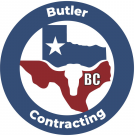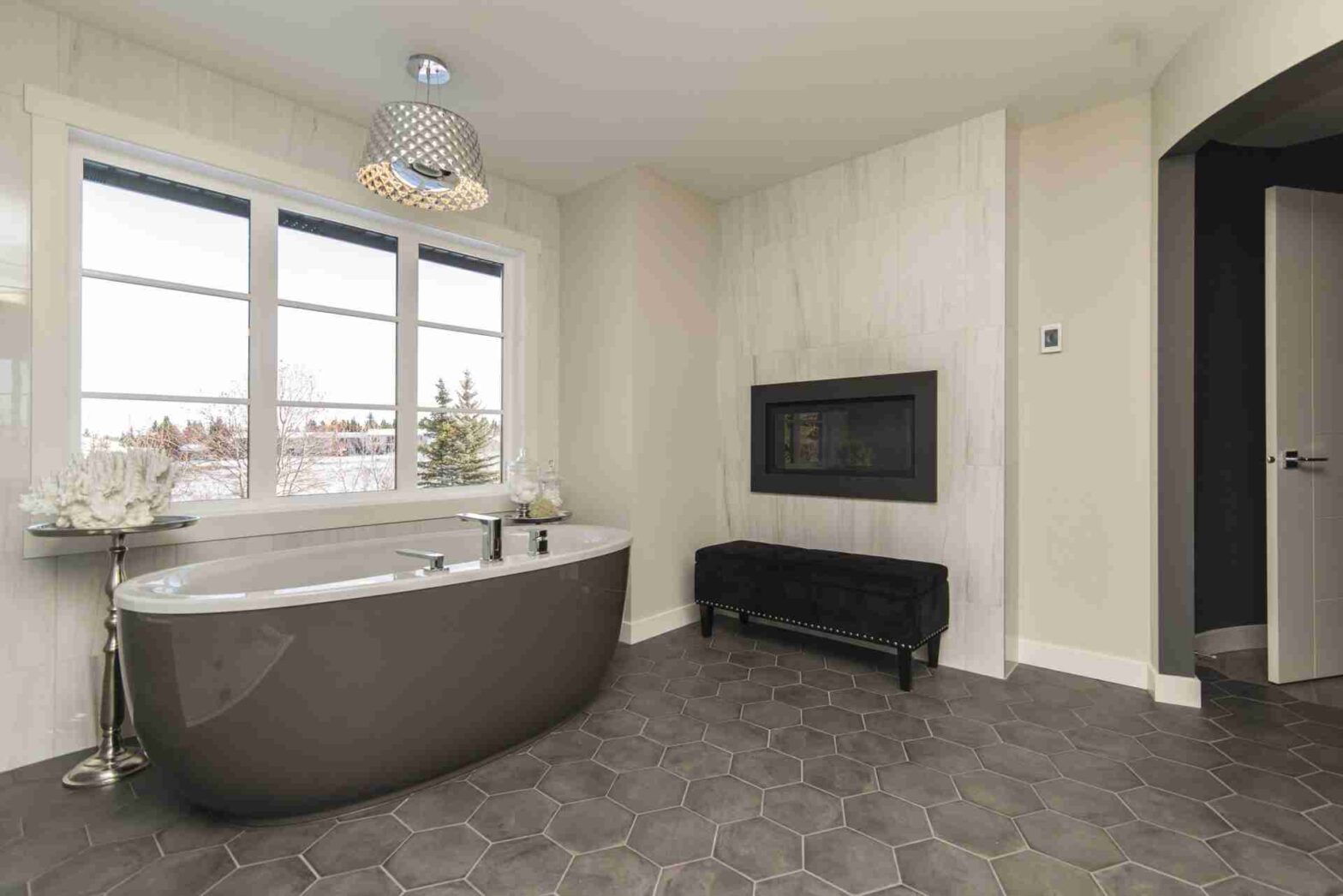Choosing flooring for a bathroom build or remodel can be a daunting task as there are many varieties of flooring available with several styles and qualities for each category. This article will give you an introduction to the types of flooring that can go into your bathroom and some pros and cons for each.
Laminate Flooring
Laminate flooring is an inexpensive product that comes in many different colors and styles to fit whatever aesthetic you’d like to have in your bathroom. It’s fairly scratch-resistant and easy to keep clean, but if it does get scratched or damaged, it cannot be refinished. The biggest concern that you should be aware of when it comes to laminate bathroom flooring is that water can soak into the cracks and seams causing the flooring to swell. If water gets trapped underneath the wood laminate flooring and sub-laminate flooring, mold and fungal growth will occur. When that happens, the floor then needs to be replaced. If you live in a particularly humid area (or the floor is repeatedly exposed to a steamy shower), we do not recommend laminate flooring.
Engineered Wood Flooring
Engineered wood is a good product that consists of a hardwood top layer over core layers of composite plywood. It looks good and is comparable to hardwood in appearance and unlike the laminate flooring, it can be resurfaced after it accrues dings and scratches. You will have to spend time maintaining an engineered wood floor by fading and removing scratches to keep up a nice-looking appearance. Most of this material is glued down, which does a good job of holding the flooring in place, but just like laminate flooring, when it gets wet, the water can seep into the cracks and mix with the glue and resin to create unwanted fungal, mold and bacteria growth. The bathroom is not the ideal place for engineered wood flooring unless you pay more for a high-quality product that is very moisture-resistant.
Vinyl Plank Flooring
Vinyl Planking is extremely popular right now in the building trades. Luxury Vinyl Flooring (LVF) comes in many different grades, types, and styles including wood plastic composite, stone plastic composite, and even different grades within those types. Typically, the types that are available at your national chain big box store will have vinyl plank flooring that is a decent product and a reasonable investment, but it’s not top-of-the-line. The wear layer thickness is usually on the thinner side and is prone to scratching. There is also a potential for water to get in through the cracks causing all of the water problems listed above.
There is; however, some vinyl planking that has a cork backing, like a COREtec material that you can actually pull up a couple of planks and place a drying material underneath as long as it’s not a sewage leak or the water hasn’t sat in the area for more than three days. You can actually restore the floor and dry it out without having to pull all of the flooring up. In most cases, with water damage, you’d have to pull out all of the flooring to dry it and mitigate it properly.
Tile Bathroom Flooring
Tile flooring is the most expensive, but it’s also the best. It has a beautiful appearance and is also a good investment in the long run. Tile is made of sand, clay, and other materials mixed together and kiln-dried. There are two types of tile flooring – ceramic and porcelain.
Ceramic Tiles are kiln-dried at a lower temperature than porcelain tiles and as a result, they are softer and more porous. This causes it to be more absorbent to water than porcelain tiles, making them unideal for a bathroom. They do, however, stay at a cooler temperature and are more desirable in hot climates.
Porcelain Tiles are kiln-dried at a higher temperature than ceramic and are harder, more durable tiles than ceramic. Porcelain tiles are also more resistant to chipping and cracking. They are more expensive, but they’re a better long-term investment as they will outlast ceramic.
All tiles are held together by grout. Grout comes in many different grades and styles and it’s important to know what is going in your bathroom. It’s a porous material that can be penetrated by water allowing it to seep underneath the tile causing fungal growth. Grout can be sealed to help prevent this from happening, but at the end of the day, the bathroom is going to be a wet place and nothing is perfectly resistant, but porcelain tile with sealed grout does a good job.
Butler Contracting Can Remodel Your Bathroom
If you’re looking to remodel your bathroom, Butler Contracting can help you select the materials that are right for your space. We can help with everything from flooring to fixtures to showers and what type of paint to put on the walls. Get the process started by calling (844) 717-2501 or contact us on our website.



